TEHRAN(Bazaar) – “Globalists, The End of Empire and the Birth of Neoliberalism” is a book written by Quinn Slobodian, professor of History at Wellesley College and published by Harvard University Press.
Neoliberals hate the state. Or do they? In the first intellectual history of neoliberal globalism, Quinn Slobodian follows a group of thinkers from the ashes of the Habsburg Empire to the creation of the World Trade Organization to show that neoliberalism emerged less to shrink government and abolish regulations than to redeploy them at a global level.
Slobodian begins in Austria in the 1920s. Empires were dissolving and nationalism, socialism, and democratic self-determination threatened the stability of the global capitalist system. In response, Austrian intellectuals called for a new way of organizing the world. But they and their successors in academia and government, from such famous economists as Friedrich Hayek and Ludwig von Mises to influential but lesser-known figures such as Wilhelm Röpke and Michael Heilperin, did not propose a regime of laissez-faire. Rather they used states and global institutions—the League of Nations, the European Court of Justice, the World Trade Organization, and international investment law—to insulate the markets against sovereign states, political change, and turbulent democratic demands for greater equality and social justice.
Far from discarding the regulatory state, neoliberals wanted to harness it to their grand project of protecting capitalism on a global scale. It was a project, Slobodian shows, that changed the world, but that was also undermined time and again by the inequality, relentless change, and social injustice that accompanied it.
For Slobodian, neoliberalism is ultimately less a theory of the market or economics than of law and state, and his work gives us a much clearer sense of how the old world of empire gave way in the twentieth century not to a quasi-libertarian world of markets but to international institutions that were highly active in prescribing trade policies and rules about competition. Below, Slobodian introduces his study:
“If I had to give this book an origin point, it would be almost 20 years ago, at the 1999 protests against the World Trade Organization meeting in Seattle. For people who don’t know much about it, a famous coalition of “teamsters and turtles,” meaning environmentalists along with labor unions, students, anarchists, old hippies, and assorted others shut down the meeting and shook the organization to its core. Despite the director-general’s famous call to “re-brand” in the early 2000s, the WTO hasn’t completed a negotiating round since. So, the protest was a big deal.
I was a junior in college in Portland at the time, a few hours south of Seattle, and for reasons mostly to do with laziness and ennui, I didn’t go. I remember watching the protests on our small box TV with a coat hanger stuck in the back with the sinking feeling that “oh no, a world historical event is taking place that I passed on to watch some Lars von Trier movies on VHS.”
My friends and classmates felt activated, painting huge papier-mâché fists and strapping them to their backpacks, filled with certainty. Myself, I felt demobilized and filled mostly with disorientation.
The 1990s were a weird time to come of age. Middle class North American white kids like me were profiting from everything that went under the decade’s buzzword of globalization but also saw it as something ominous, sometimes verging on evil. We were the Adbusters generation. My sixteen-year-old sister was printing small stickers attacking McDonald’s viscerally. I wrote and photocopied a zine that said on the cover in block letters: OPEN YOUR EYES.
But open them to what exactly? The world economy was like the Nothing from my favorite childhood film, The Neverending Story, an anonymous, faceless force that seemed to swallow everything in its path, extinguishing particularity; it Coca-Colonized, to use a term of the time, squashed dreams of global modernization and turned the Third World back into a labor colony to make our stuff.

Before there was fake news there were what I saw then as fake needs, created by advertising and the mind control of the blizzard of logos—the swooshes and stripes that now adorn the cool kids in Berlin and Brooklyn. Back then we were all little Frankfurt Schoolers, or Frankfurt Pre-Schoolers, distrustful of irony though we were steeped in it, seeking elusive authenticity, wanting to unveil, unmask, expose, and upend—in my case, preferably from my desk, typewriter, and the warm chairs of the library.
So this book came out of a simple question that germinated at that time: why would anyone defend the great Nothing of the world economy, the power that forced the hands of democratically elected governments, anonymously imposed new rules and strictures and only rewarded us with what I saw in my adolescent mind as a disposable culture that would choke us all with plastic, garbage, and refuse before I even had a chance to die a natural death. (Capturing some of the melodrama of the time here).
I wanted to come as close as I could to a kind of deep logic of the moment. I knew, or thought I knew, what “we” wanted—but what did “they” want? How did “they” understand their own mission in the world?
The word that arose in the 90s to describe what “they” believed was “neoliberalism.” Although the term was coined by a group of intellectuals in the 1930s to describe themselves, as I recount in the book, in the 1990s and afterward it was used mostly by its enemies—as an academic curse word. As I write in the book’s introduction:
Neoliberals, we were told, believed in global laissez-faire: self-regulating markets, shrunken states, and the reduction of all human motivation to the one-dimensional rational self-interest of Homo economicus. The neoliberal globalists, it was claimed, conflated free-market capitalism with democracy and fantasized about a single world market without borders.
But why would anyone promote such a philosophy? There are a few obvious answers. The first is that the big Nothing was actually the big Everything: it was lifting the aggregate wealth and productivity of humanity as a whole. The number of people living on a dollar a day was dropping year to year. Even if inequality was also growing—and ecological problems were not going anywhere—the rising tide, globally speaking, was lifting all ships. Therefore there was nothing “evil” about the IMF, the World Bank, the economics profession, and the Financial Times op ed page. They were simply watching the biggest line graph of all—world economic growth—creep ever higher. We, on the other hand, were all nostalgic brats of the global north, unable to apprehend the bigger picture.
The second explanation was that neoliberal globalization made a small number of people very rich, and it was in the interest of those people to promote a self-serving ideology using their substantial means by funding think tanks and academic departments, lobbying congress, fighting what the Heritage Foundation calls “the war of ideas.” Neoliberalism, then, was a restoration of class power after the odd, anomalous interval of the mid-century welfare state.
There is truth to both of these explanations. Both presuppose a kind of materialist explanation of history with which I have no problem. In my book, though, I take another approach. What I found is that we could not understand the inner logic of something like the WTO without considering the whole history of the twentieth century. What I also discovered is that some of the members of the neoliberal movement from the 1930s onward, including Friedrich Hayek and Ludwig von Mises, did not use either of the explanations I just mentioned. They actually didn’t say that economic growth excuses everything. One of the peculiar things about Hayek, in particular, is that he didn’t believe in using aggregates like GDP—the very measurements that we need to even say what growth is.
What I found is that neoliberalism as a philosophy is less a doctrine of economics than a doctrine of ordering—of creating the institutions that provide for the reproduction of the totality. At the core of the strain I describe is not the idea that we can quantify, count, price, buy and sell every last aspect of human existence. Actually, here it gets quite mystical. The Austrian and German School of neoliberals in particular believe in a kind of invisible world economy that cannot be captured in numbers and figures but always escapes human comprehension.
What I explore in Globalists is how we can think of the WTO as the latest in a long series of institutional fixes proposed for the problem of emergent nationalism and what neoliberals see as the confusion between sovereignty—ruling a country—and ownership—owning the property within it. I build here on the work of other historians and show how the demands in the United Nations by African, Asian, and Latin American nations for things like the Permanent Sovereignty over Natural Resources, i.e. the right to nationalize foreign-owned companies, often dismissed as merely rhetorical, were actually existentially frightening to global business people. They drafted neoliberal intellectuals to do things like craft agreements that gave foreign corporations more rights than domestic actors and tried to figure out how to lock in what I call the “human right of capital flight” into binding international codes. I show how we can see the development of the WTO as largely a response to the fear of a planned—and equal—planet that many saw in the aspirations of the decolonizing world.
Perhaps the lasting image of globalization that the book leaves is that world capitalism has produced a doubled world—a world of imperium (the world of states) and a world of dominium (the world of property). The best way to understand neoliberal globalism as a project is that it sees its task as the never-ending maintenance of this division. The neoliberal insight of the 1930s was that the market would not take care of itself: what Wilhelm Röpke called a market police was an ongoing need in a world where people, whether out of atavistic drives or admirable humanitarian motives, kept trying to make the earth a more equal and just place.
The culmination of these processes by the 1990s is a world economy that is less like a laissez-faire marketplace and more like a fortress, as ever more of the world’s resources and ideas are regulated through transnational legal instruments. The book acts as a kind of field guide to these institutions and, in the process, hopefully recasts the 20th century that produced them.”




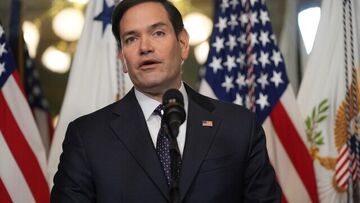



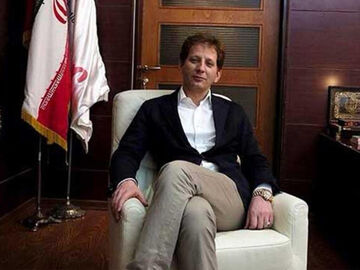
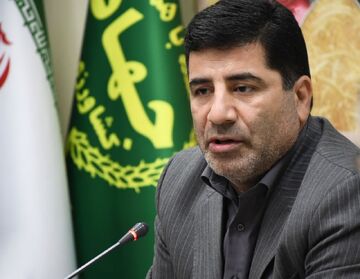
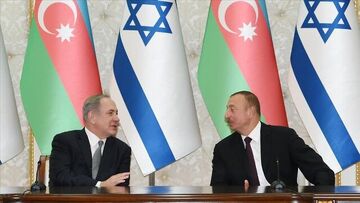
نظر شما